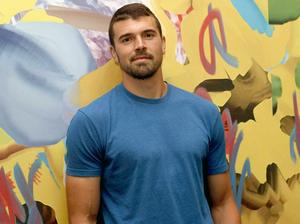
The Cincinnati startup scene sits at an interesting juncture. More businesses than ever are attracting outside capital, while young entrepreneurs seem to be disrupting the old paradigm that the ecosystem is built on health care innovation alone. Today, there are rising stars in categories like fintech, real estate and data. And a key exit could spur a flywheel effect that spawns more new ideas and companies alike.
Cincy Inno has been following all the storylines with heightened interest. As a way to recognize the region’s fastest-growing, most innovative and impactful startups, we're bringing back our annual “Fire Awards," formally Inno on Fire. It's our most premier recognition for the companies and people setting the local innovation economy ablaze.
Candidates — 45 in total across nine categories — were sourced by nominations within the startup Cincinnati ecosystem and selected by the Cincy Inno editorial team.
This year's winners will be announced in the June 24 print edition of the Cincinnati Business Courier.
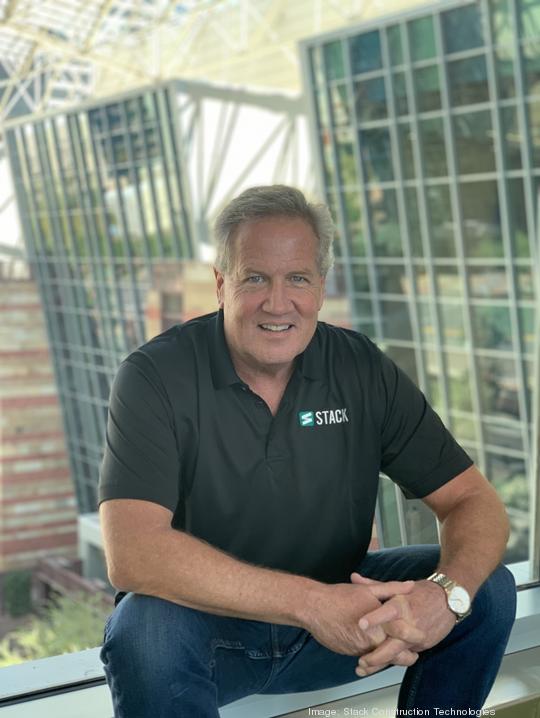
Best tech
- Stack, a Blue Ash-based construction tech startup, has found solid footing by catering largely to the subcontractor community. Its cloud-based preconstruction software allows for blueprint measuring and takeoff, or the process of determining how much of each material is needed to complete a job, as well as cost estimating and more. Stack ranked as one of the region’s fastest-growing companies of 2021; it grew revenue 117% to $13.7 million last year. And a $17 million fundraise fueled two recent acquisitions to further expand its platform.
- Lisnr has long been considered a Cincinnati startup darling. The company’s data-over-sound tech, which enables proximity verification and contactless transactions, has attracted a slew of major investors, including Visa and Intel. Late last year, the OTR-based startup inked a major partnership with Paga Group, considered a household name in the world of fintech in Africa. The deal will touch 33,000 merchants and 18 million customers.
- Pieces, an Over-the-Rhine-based software startup, is developing a first-of-its-kind productivity platform that enables developers and designers to save, find and share file fragments, or smaller parts of an overall project. The startup, led by Cincy Inno “5 Under 25” honoree Tsavo Knott, has quietly raised millions in venture funding led by Columbus-based Drive Capital.
- Amify, a tech startup that helps brands like P&G and Energizer optimize their sales on Amazon, has held down an “HQ2” in Cincinnati since 2019. The company has since greatly expanded its footprint — it opened a new office at Longworth Hall at the start of the year and recently tripled its warehouse space, with a new 30,000-square-foot building in West Chester.
- TinnCann, a 2021 Techstars Chicago graduate, allows for 1-on-1 video chats with athletes and experts in fashion, photography, music and more. The company was crowded this year’s “Inno Madness” champion and continues to onboard new talent as it looks to land its first outside funding round since launching in 2020

Sustainable startups
- Founded by ex-P&Ger Jake Whitman, Really Good Boxed Wine is a direct-to-consumer wine brand based in Cincinnati. In addition to pushing the boundaries in terms of quality, Really Good Boxed Wine also aims to make the boxed wine drinking experience more sustainable. For instance, Whitman says the carbon footprint for a bag and box of wine is 84% lower than traditional bottles.
- It’s not every day a company can claim its spot among the nation’s 100 most promising startups, but Cincinnati-based Plaine Products can. In May, the consumer goods company was selected as a “Technology Pioneer” by the World Economic Forum for its efforts to eliminate single-use plastics. Launched in 2017, the company was one of just 33 companies to represent North America and the sole Midwestern firm on the list.
- Electric cars are forecasted to dominate the roads in the years to come, and downtown-based Electrada, which installs, owns and operates electric vehicle charging stations, wants to be ahead of the curb. Last year, the firm installed its equipment in high-profile locations throughout the region and landed more than $10 million in funding to fuel its growth.
- Clean Earth Rovers, comprised entirely of University of Cincinnati and Xavier University alumni, is using tech to fight plastic and water pollution. The company has been receiving extra buzz in recent months thanks to its patented product, the Plastics Piranha, an autonomous rover that can skim marine facilities collect waste. The first Plastics Piranha is scheduled to launch later this month at Point San Pablo Harbor near San Francisco.
- Norwood-based Farmed Materials, which started in 2016, develops agriculturally derived materials. It’s most recent success — inking a deal with Goodyear and U.S. Department of Defense-sponsored BioMADE to develop natural rubber from dandelions.

Health care & biotech
- Sense Neuro Diagnostics, founded in 2014 by four University of Cincinnati physicians, is developing medicine devices, or non-invasive brain scanners, to improve outcomes for stroke and brain injury patients. The tech has attracted investment from the likes of Queen City Angels and Cleveland Clinic. Sense Neuro also recently participated in the MedTech Accelerator, a bootcamp-type accelerator backed by the famed Mayo Clinic and Arizona State University Alliance for Health Care.
- Standard Bariatrics, a Blue Ash-based medical device company, received key FDA approval for its flagship product, the Titan SGS, in April 2021. Sales, since, continue to skyrocket. The company said the Titan SGS, a surgical stapler used in gastric sleeve surgery, a treatment for obesity, is now generating $1 million in sales per month — and counting. The device has been used in 2,500 clinical cases to date.
- Blue Water Vaccines became Cincinnati’s newest public company in February, and with a huge initial splash on the Nasdaq capital market. It raised $20 million in its initial public offering. The funds will help the company continue its work to develop a universal flu vaccine, a single-dose vaccine that would provide lifelong protection against all flu strains. According to the World Health Organization, there are more than 1 billion influenza infections each year.
- Ms.Medicine, which specializes in concierge primary care for women, has been in a hyper growth mode since 2020. It now has 10 locations across the country, with its newest offices in Denver, St. Louis and Boca — and more are in the pipeline. In February, Ms.Medicine added Dr. Shawn Ryan, president of BrightView, a Walnut Hills-headquartered outpatient addiction treatment provider, as its newest board member and strategic investor.
- Bexion, which is developing a more targeted approach to treating cancer, particularly brain and other solid tumors, tapped Richard "Scott" Shively, an experienced biopharma founder, as its president and CEO in February, a hire that signals a sea change for the clinical stage oncology startup as it starts to eye commercialization. Bexion, per an investor presentation released last year, is currently seeking pre-IPO lead investors for an open $50 million Series C.
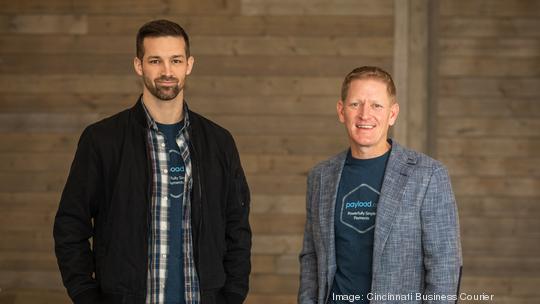
Real estate
- Payload offers digital payment capabilities for a variety of real estate transactions. The company has seen breakneck growth, with revenue up more than 800% in 2021, and officials expect to hit $1 billion in payments handled this year. In April, the company took on outside capital for the first time, bringing in $1.5 million.
- Techstars alum Homebuyer is a mortgage lender targeting first-time homebuyers. The company uses tech to make the approval process fast and less expensive, while offering targeted information, newsletters and articles to help newbies navigate the buying process.
- Cincinnati-based HomeShake is disrupting the traditional way people buy and sell homes has quickly become bigger than some of the region’s largest residential real estate firms. Since closing its first home in June 2020, the company has reached more than $20 million in sales volume in less than two years, and officials say the momentum is only building.
- Ocusell’s platform helps real estate agents generate, manage and integrate their listings in just a few clicks — and publish directly to the MLS, or Multiple Listing Service. As a result, the company’s platform is able to streamline a process that could take weeks.
- Downtown-based Struxtion provides working capital to contractors and subcontractors. The typically quiet 2-year-old startup made a splash last year when it raised $5.5 million, led by commercial real estate giant North American Properties.
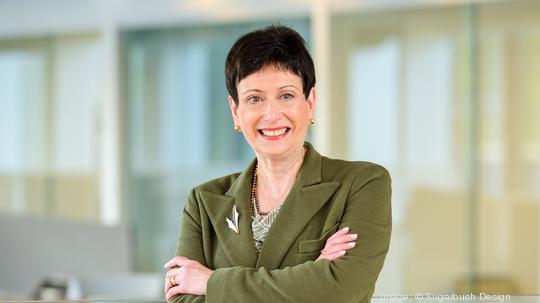
Women-led startups
- Jan Rosenbaum spent more than 25 years as a P&G scientist. She joined Cincinnati Children’s spinoff Kurome Therapeutics as CEO and chief scientific officer in 2020, and a year later, helped guid the biotech startup through a $15 million Series A. Rosenbaum said Kurome, which is developing novel therapies to help combat cancers like AML, or acute myeloid leukemia, is considered a “fast follower.” Interest in the company spiked when one of its competitors released promising clinical trial results. Rosenbaum had her team ready to field the calls that followed.
- Kim Beach founded InsureWomen in 2021, after noticing a void in the insurance buying process for women. The company recently celebrated its one-year anniversary by expanding its concept nationally. Agents can now join throughout the United States. Beach said her goal is to build to 200 members in a year.
- Dr. Somi Javaid opened the first HerMD location in Symmes Township in 2015, and the concept has grown exponentially since. HerMD, which now has two locations in the region, announced a $10 million Series A in March to expand the concept nationally. The company plans to open 10 physical centers over the next 18 months, with a heavy focus initially on the Midwest. The practice offers all gynecology services with a focus on women’s sexual health and menopause. Javaid said the goal is to eliminate disparities and reduce the stigma surrounding women's health care.
- Aclipse Campervans, a rentable campervan company founded in 2019 by friends Sofia Mimendi and Emily Bruns, provides a unique and all-inclusive solution for people who want to adventure in nature, without the need to invest in their own camping gear. Aclipse has experienced a huge spike in demand as the Covid-19 pandemic has pushed more people outdoors, and the company looking to add more vans, hire personnel and add satellite locations. Since its launch, the company has received support from ecosystem staples like Aviatra Accelerator, SoCap, Main Street Ventures and more.
- When esthetician Sylvia Brownlee founded Skin by Brownlee & Co. seven years ago, she was building the business out of a 200-square-foot space. Now Brownlee is an official Target vendor. Four of Skin by Brownlee’s top-selling products are featured on the retailer’s website and could eventually make it to store shelves. The high-profile launch, she said, is one that could quickly raise the young brand’s profile in the beauty industry.
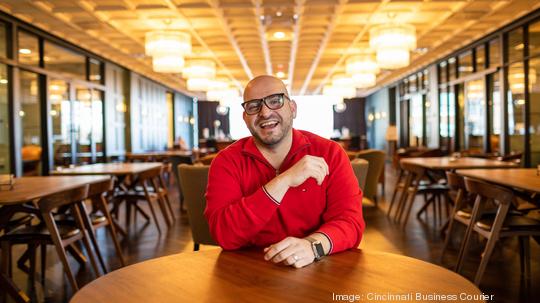
Fintechs
- Akru founder Mohsin Masud wants to change the way real estate investing is done by opening the experience up to investors of all sizes. He’s gathered a high-profile group of backers, from Silicon Valley heavyhitters to Cincinnati’s former mayor John Cranley.
- Luma Technologies remains one of Cincinnati’s most watched startups. Not only is it the region’s best-funded fintech, but it also offers one of the largest and longest-tenured structured product platforms in the U.S. market. The company, backed by Toronto-based TD Bank Group, CIBC, Bank of America Merrill Lynch and Morgan Stanley, also received tax credits last year to fund its local headcount growth.
- Pay Theory, an Evendale-based fintech, helps make payment more inclusive for families, especially those “un- or under-banked.” Its platform, which launched in 2021, allows families to pay for an online transaction in cash using a network of nearly 60,000 retailers.
- Spendr might be newer to the market, but it’s capitalizing on a surging industry, meaning it has plenty of room to grow. Founded by Lucas Gould, the company offers a consumer-facing payments app built specifically for the cannabis industry. The company quickly hit a multimillion-dollar valuation, a little more than a year after Gould quit his job with JPMorgan Chase to build out the business full time.
- Montgomery-based Neural Payments connects banks and credit unions to payment providers like PayPal or Venmo, cutting down an otherwise clunky user experience and bridging a gap between fintech and financial institutions. The idea started as an academic exercise at MIT, and the company’s founders include leaders from LeanKit, Apple and FIS/Worldpay.
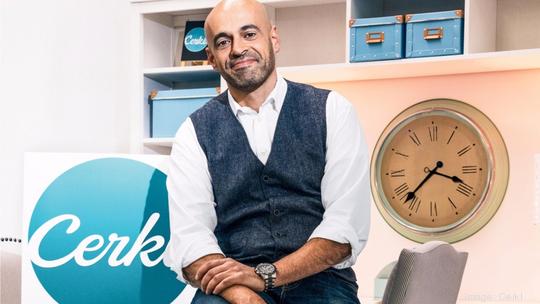
Future of work
- When the Covid-19 pandemic hit, Blue Ash-based Cerkl seized an opportunity and hasn’t looked back. The startup — which provides a customized approach to employee and corporate communications — announced plans last year to quadruple its workforce. That announcement came on the heels of a $7 million funding round.
- Peerro is designed to help young workers land jobs, billing itself as a LinkedIn alternative. The company — which counts CincyTech and Queen City Angels among its biggest backers — recently added a chief revenue officer to help further fuel its growth.
- Hearty is a LinkedIn alternative that lets you build a professional network based on personal recommendations. It was founded in 2021 by three former Ahalogy execs, who exited their prior company for $50 million the year before.
- Covington-based Cloverleaf uses behavioral tools to provide insights into team effectiveness and provides customized coaching to improve performance. In early 2021, the company closed a new funding round as it worked to quadruple the numbers of coaches on its platform throughout the year.
- Pantomath may be young, but it’s already packing a big punch, thanks to its connections to Vndly, one of the region’s biggest startup success stories. Founded by Somesh Saxena, a GE Aviation alum whose brother launched Vndly, the data startup aims to help companies to instantly detect those operational challenges through automated real-time alerts; troubleshoot them with a single-view into the pipeline across several data verticals to identify the root-cause; and resolve the issue with the click of a button. So far, the company has already brought in $4 million to fuel its growth.
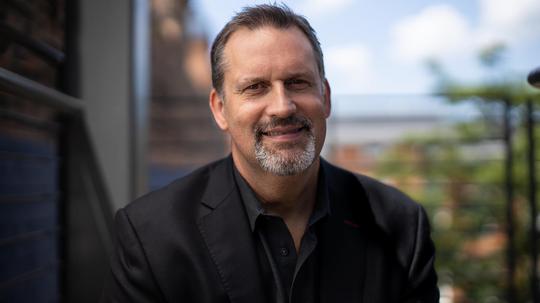
Investor of the year
- Managing partner Tim Schigel launched Refinery Ventures after serving as a founding member of local startup catalyst group Cintrifuse. The firm has found its sweet spot — post-seed startups in the enterprise software-as-a-service, or SaaS, space in fields like IT, human capital, digital health and media and marketing. Its portfolio includes companies like Cincinnati “unicorn” Astronomer and Halo Health. Refinery officially closed its second fund in December at nearly $37 million, more than double its inaugural fund from 2018.
- CincyTech is a staple in the startup Cincinnati ecosystem. Last year, the firm raised $19.7 million for its fifth fund, and it plans to use the funds to continue core investments in health care and digital companies. CincyTech has more than 25 active startups in its portfolio, including Genetesis, Standard Bariatrics, and its latest addition, Cincinnati-based TeamCentral.
- Lightship Capital invests in typically underfunded, minority founders with a focus on consumer packaged goods, e-commerce, sustainability, AI and health tech. More recently, founder Candice Matthews Brackeen has launched Lightship Foundation, an economic development group. Lightship Foundation recently acquired Black Tech Week, one of the nation’s premier conferences for founders and tech professionals of color. Lightship is moving the event from Miami to Cincinnati this summer.
- Covington-based Connectic Ventures is considered a pioneer in data-driven investing. The firm leverages an AI bot, Wendal, to remove bias in how startups are evaluated and funded. That’s helped Connectic invest in more than 90 early-stage companies. Its latest investment includes New York-based Translator, which was founded by Natalie Egan, an openly transgender tech CEO, the firm’s first reach in the LGBT community.
- EGateway Capital launched in early 2021 with a $20 million fund. A year later, the firm has quintupled that with new $100 million effort. The Covington-based firm is investing growth equity in technologies, platforms and marketplaces in the e-commerce value chain, which includes how goods are marketed, sold, transacted and delivered. Its portfolio companies include Hamilton’s 80 Acres Farms, Austin-based SamCart, Los Angeles-based Flowspace, and Cargomatic, which is considered the Uber of short-haul trucking.
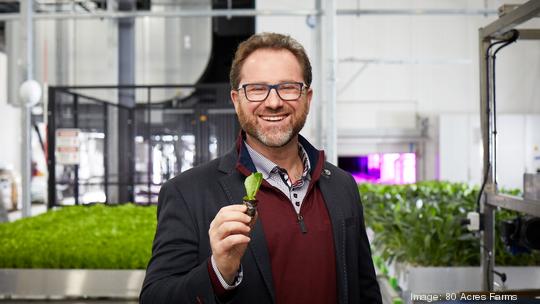
Startup of the year
- 80 Acres Farms has entered hypergrowth phase, fueled by a $160 million Series B funding round led by NYC’s General Atlantic last year. The vertical farming startup, known best for its tasty fireworks tomatoes and assorted salad blends, recently expanded its leadership team and is planning a series of new farms, including in Northern Kentucky and Georgia. Both will be three to four times larger than its 70,000-square-foot flagship facility in Hamilton. CEO Mike Zelkind recently told Cincy Inno 80 Acres plans to triple and quadruple revenues on an annual basis “for a while.”
- Astronomer is one of three local startups to land massive funding rounds since mid-2021, closing a $213 million Series C in March. That’s the second-largest venture capital announcement in Cincinnati startup history. Astronomer is developing modern data orchestration tools, meaning it brings information together from multiple sources, synthesizes it and prepares it for analysis. The whole process is powered by Apache Airflow, a popular open-source platform that Airbnb spun out to help manage its increasingly complex workflows. Astronomer engineers now represent 16 of the top 25 all-time contributors to the platform.
- Enable Injections is Cincinnati’s best-funded startup, catapulting up the rankings in January with a $215 million Series C round, the largest raise in the region's history. A recent collaboration with drugmaker Sanofi and global investment group Blackstone Life Sciences pushes Enable’s total related funding past the $700 million mark. Enable is developing and manufacturing an investigational wearable drug delivery system called enFuse; veteran CEO Mike Hooven said the device —a body-worn drug delivery platform, and an alternative to IV administration — is one of the biggest disruptions he’s ever seen in health care.
- Vndly, a Mason-based provider of cloud-based workforce and vendor management technology, is arguably Cincinnati’s best startup success story to date. Shashank Saxena, a former Kroger executive, founded the company in 2017 to improve the often slow, clunky tech recruiting industry. In November, he sold Vndly to Workday Inc. (NASDAQ:WDAY) for $510 million — the region’s largest exit. Local ecosystem enthusiasts expect Workday to keep the company’s Cincinnati office and expand headcount.
- Griid Infrastructure, a bitcoin mining startup, is currently in negotiating with blank-check firm Adit EdTech Acquisition Corp. for a possible SPAC, or special purpose acquisition company, merger. The deal, if finalized, would value Griid at more than $3 billion. Earlier this year, Griid inked a deal to mine bitcoin for the world’s largest chipmaker, Intel. A U.S. Securities and Exchange Commission filing said the initial order of Intel's chips are set to be delivered in 2022, and Griid will have access to a significant share of Intel’s future production volumes.



